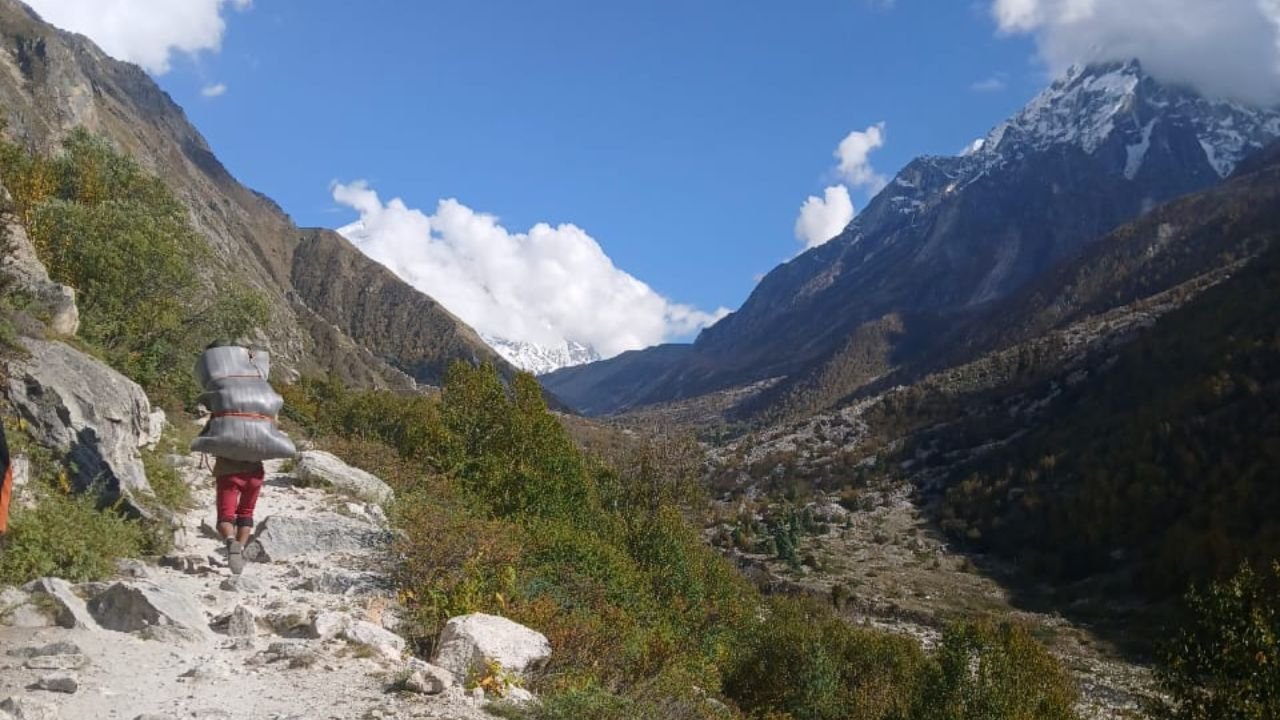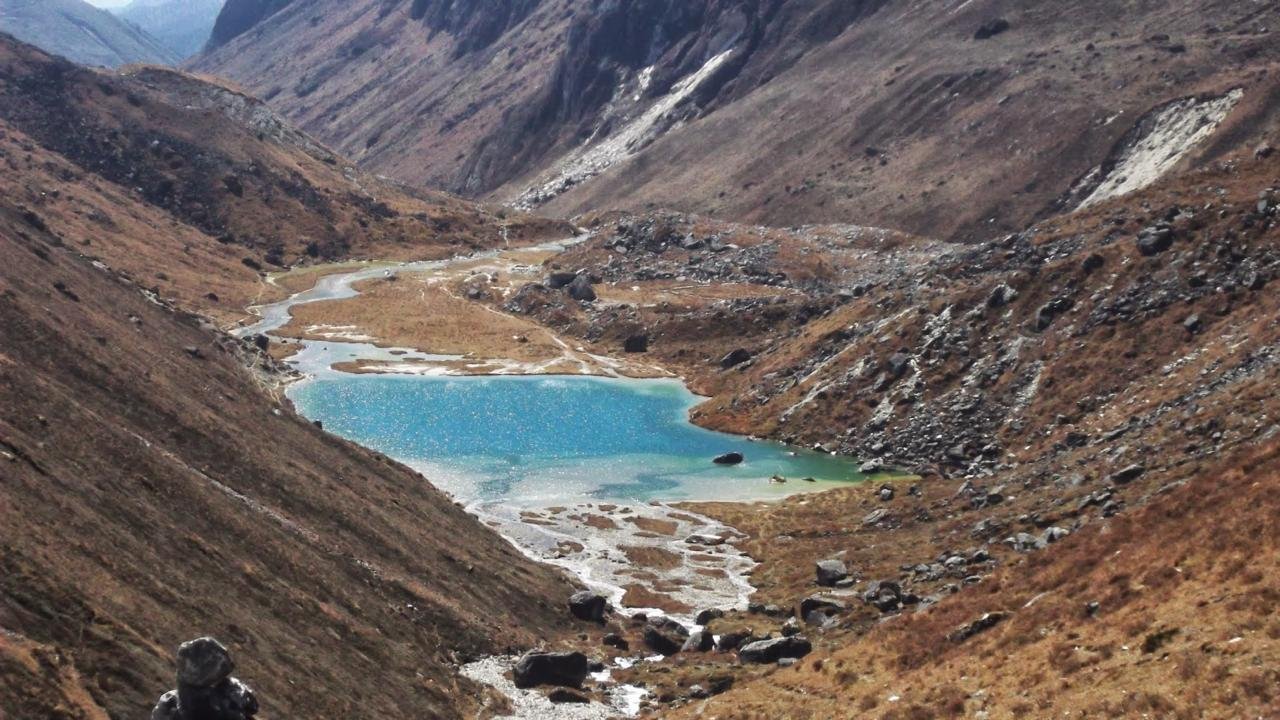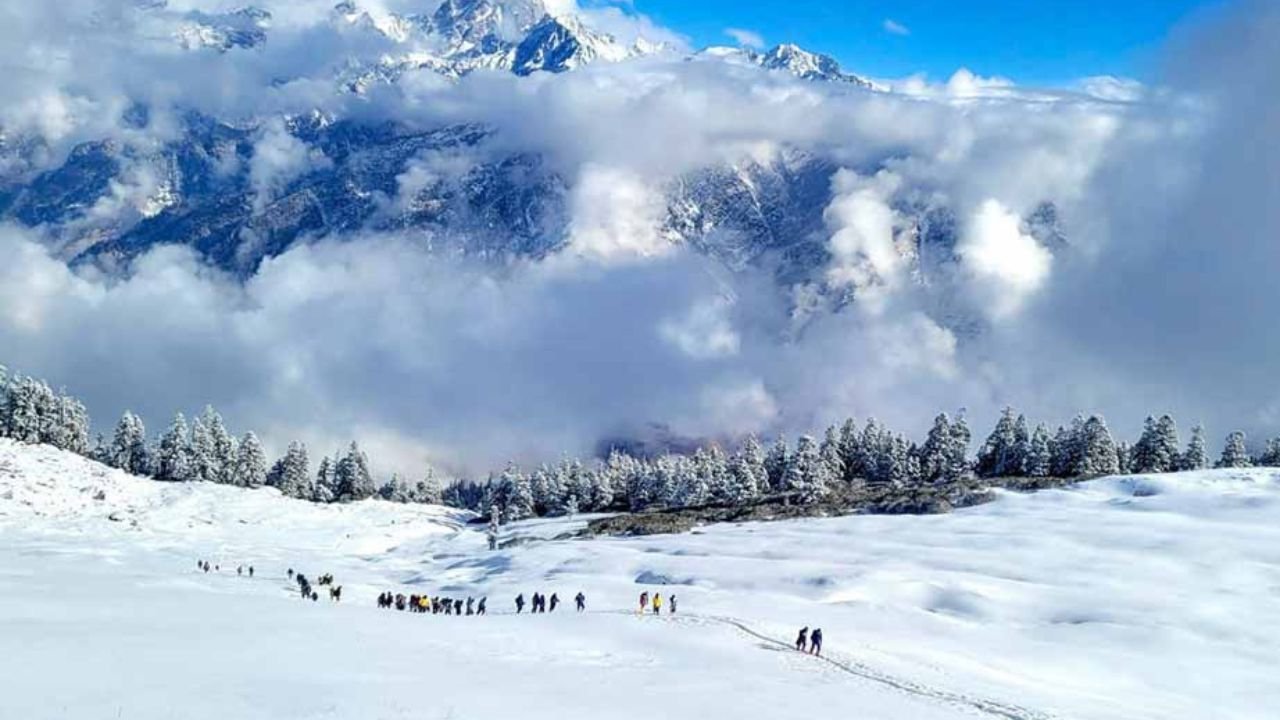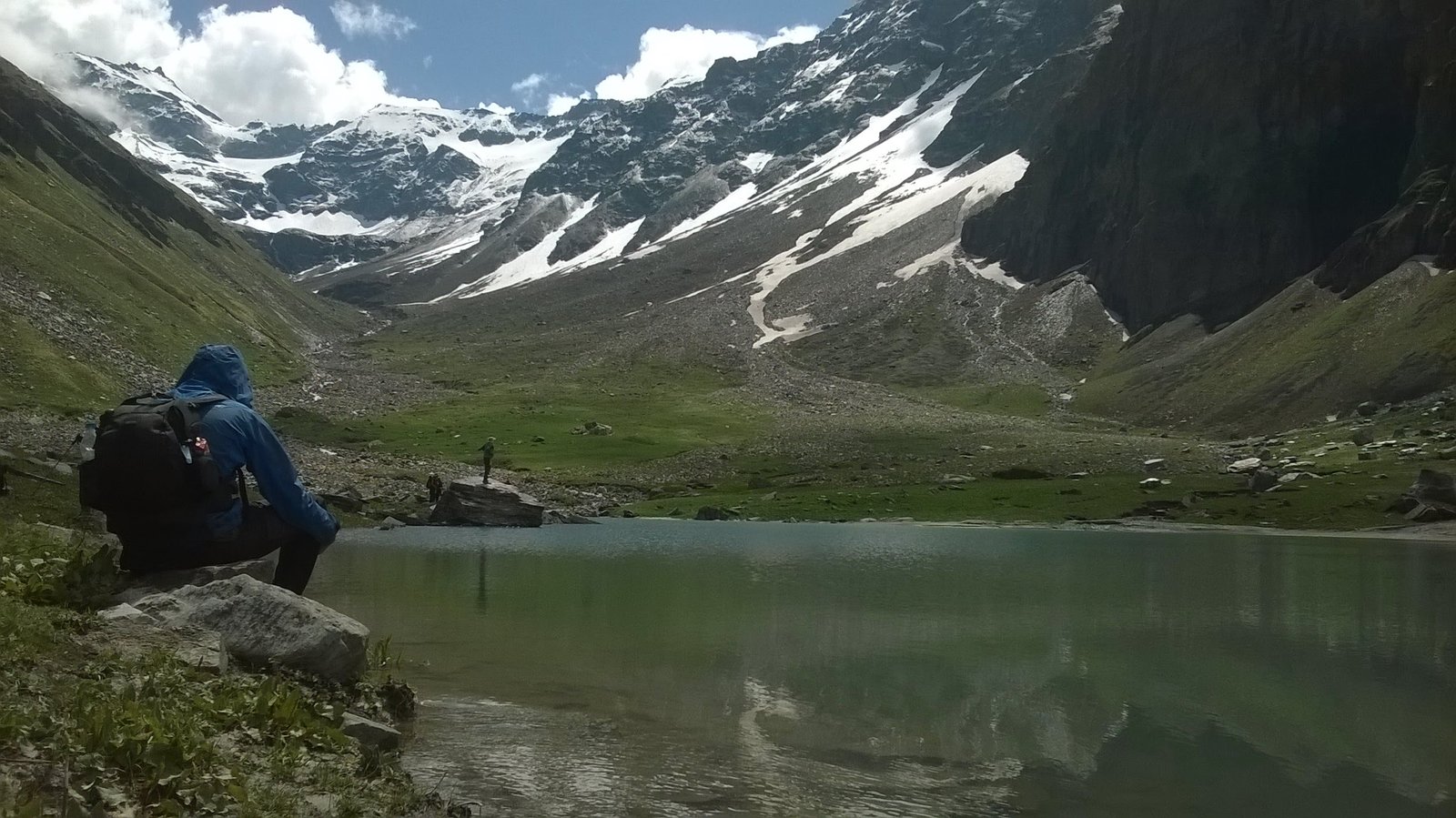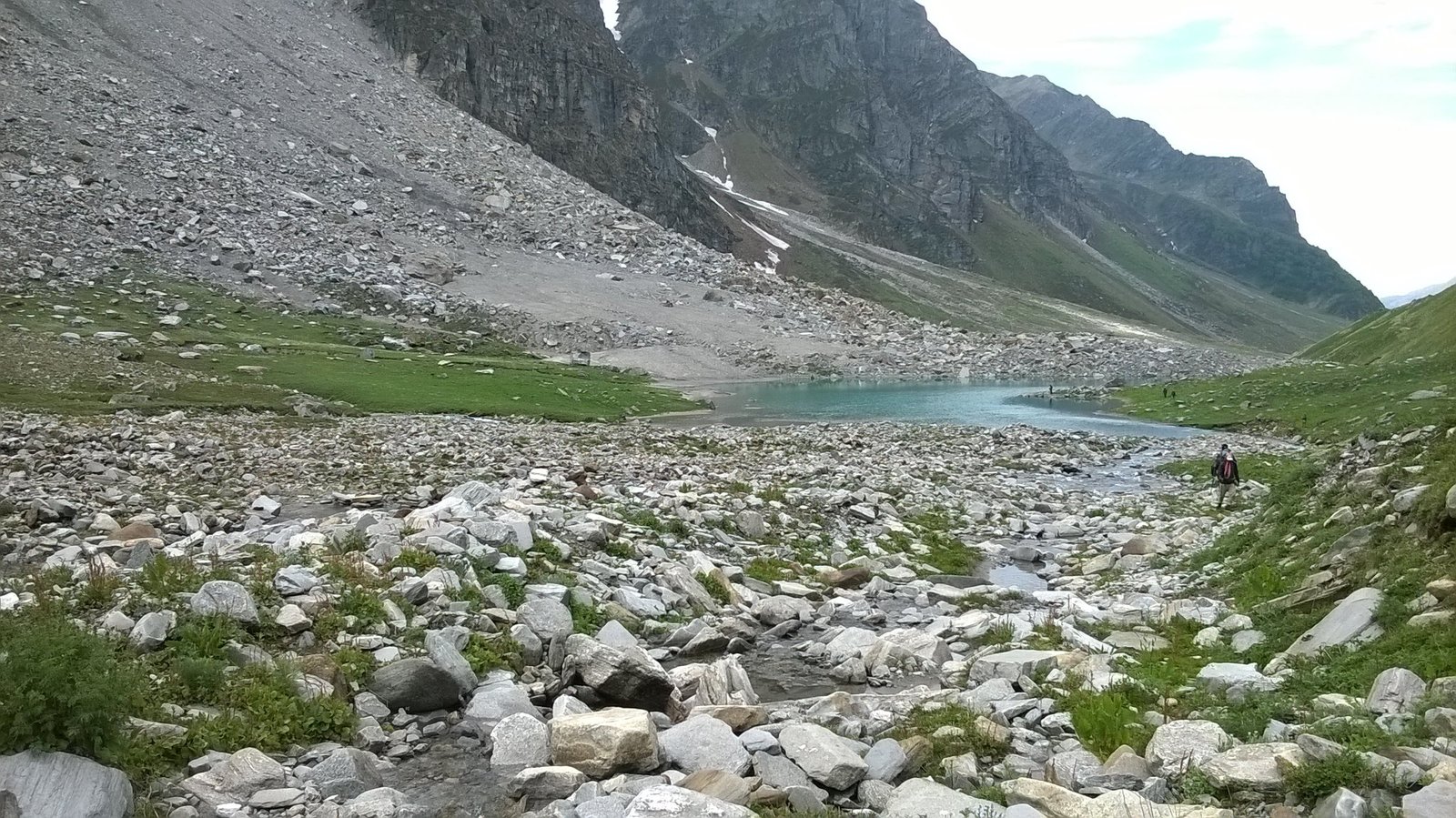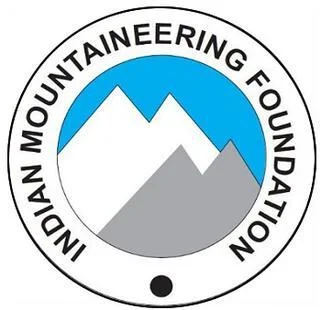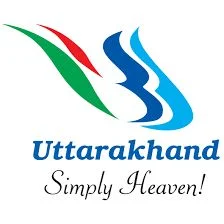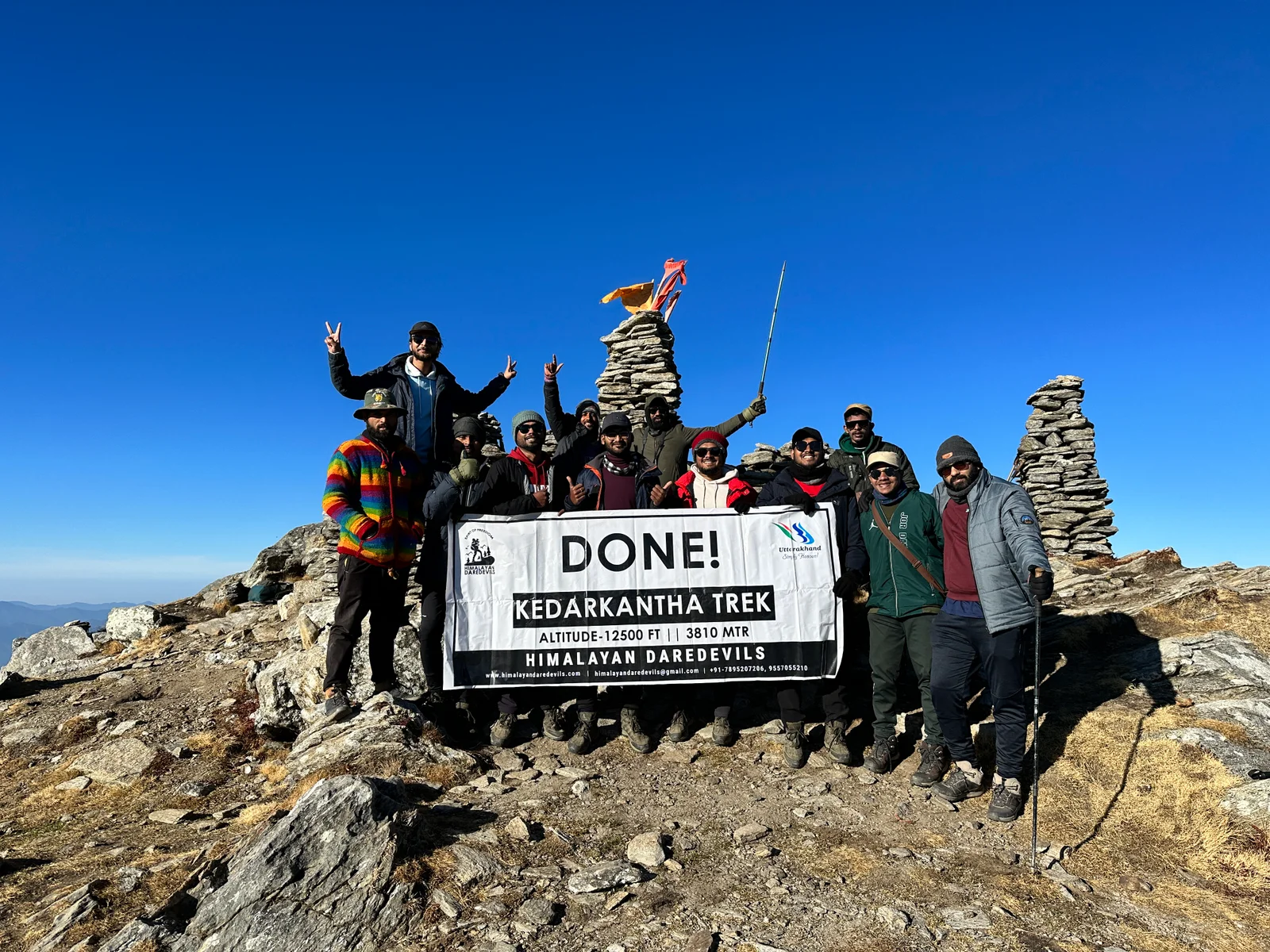Starting From
21,848
18,999.00
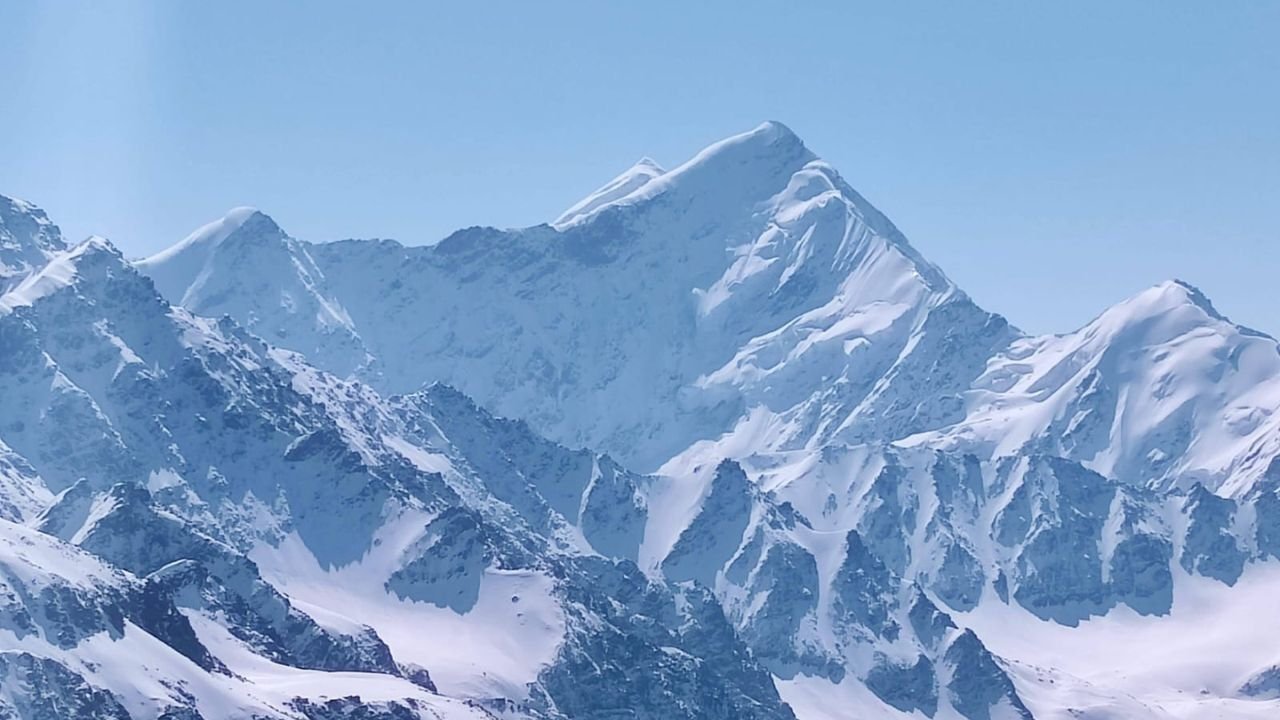
Starting From
21,849
18,999.00
Starting From
21,849
18,999.00
Bagini Glacier and Changbang Base Camp (129+ Reviews)
One way trail. The trek starts and ends at Jumma
Dehradun Railway Station
Jolly Grant Airport
Jumma
May, June / September, October
Joshimath to Joshimath
Veg and Egg
Camping
Uttarakhand
8 Days
Moderate
14800 Ft
43 Km
Overview
Located in the Nanda Devi National Park, Uttarakhand, the Bagini Glacier Trek offers some unsurpassed views of the mountains and a thrilling trekking experience.Located at the base of the Changabang and Trishuli peaks,Bagini Glacier stands at an altitude of 14,816 ft,taking you up close to the Garhwal Himalayas.
Itinerary
On arrival in the holy town of Rishikesh, board a vehicle and drive to Joshimath. If Rishikesh is reached in the morning, the drive can be undertaken the same day. Joshimath is roughly 256 km from Rishikesh, and the distance can be covered in roughly 4 hours 40 minutes if the traffic is smooth. The drive will be through several sacred places like Devprayag, Rudraprayag and Karnaprayag. On the way, enjoy breakfast and lunch. Once in Joshimath, transfer to your lodging for an overnight stay.
-
Early in the morning, drive to the village of Jumma, from where your Bagini Glacier trek will begin. Whatever essential supplies you need for the expedition should be bought here, as there will not be a proper town further on the way. In ideal traffic conditions, you should be able to cover approximately 46 km between the two places in about 2 hours. On the way, you will drive through many small villages like Tapovana, Reni, Lata, Phagti and Suraithota. The road meanders along the Dhauliganga River from Jumma till Suraithota, which makes the journey quite scenic.
Jumma experiences strong winds as it is near the Indo-Tibetan border, and your adventure might start here itself as you try to force your way through high-velocity winds. You cross a steel bridge over the Dhauliganga River, and then you’re trekking in Bagini Glacier begins. Your first halt will be at Ruing village, where you will camp at night. The hike is not difficult, and you will be able to cover the roughly 3 km distance in about 2-3 hours. At around 2800 meters above sea level, Ruing is a beautiful settlement, located on gentle slopes and amidst lush coniferous forests of firs, deodars and spruces.
If the village elders allow, you may stay the night at the local Panchayat Ghar, which is not always a possibility. What you can do is trek further for 2-3 km from the village, till you reach a picturesque meadow. This grassland offers two advantages: it is near to Dronagiri, where you go next; and it has a stream flowing through it, making it a pretty sight. On reaching here, erect tents and enjoy a comforting overnight stay in the mountains.
-
From Ruing, recommence your excursion and travel to the village of Dronagiri. You walk along a well-defined path that heads deeper into forests. It is the only path here, with no junctions and diverting minor tracks. The journey brings a lot of ascending and descending, after barely 4 km from the campsite, you will reach the landslide zone, and here you will see two paths going in different directions. Do not follow the one that heads upstairs because it was destroyed by glacial activity years ago. As a result, a canyon has formed there which will require the help of an expert mountaineer to cross.
Take the narrow track that heads down, and on the way you will encounter numerous brooks, crossing your path. Post walking for some distance on this rocky and dusty trail, you will come to a cemented road that will get you to Dronagiri village. The village, at roughly 3610 metres above sea level, lies in the alpine grassland ecological zone. From the topmost point in the area, numerous snow-clad peaks of the Garhwal region including Dunagiri are visible in the horizon.
You have some free time here and you may utilize it to hike a little higher and visit the temple of Bhumial, a local deity. In the evening, walk to the outskirts of the village to set up camps and stay overnight.
-
This day leave Dronagiri village early in the morning. As you recommence your expedition, you will at once encounter a steep ascent, which will take you to a ridge. Look around from atop it and see Rishi Pahar, a mountain located in the Pithoragarh district of Uttarakhand. Post a trek of approximately half-an-hour from Dronagiri, you will cross a stream, called Bagini Nallah, via a bridge made of concrete. There is a path that goes left before the bridge. Do not follow it as it will take you to Garpak village via Kanari Khal.
After you cross Bagini Nallah, you will again start climbing through the Himalayan Mountains. The path will be winding, and full of rocks and boulders. By now you would have crossed the point, beyond which nothing grows and only brown, barren slopes are seen. You now descend for some time till you reach the banks of another pretty stream. Here you will reach post walking for roughly one hour 15 minutes from the Bagini Nallah Bridge. The land here is covered with grass, and many hikers choose to camp here.
Keep on the track, and after walking for another hour, reach Longatulli. Inexperienced mountaineers generally stop here for a day to acclimatize. Overnight stay in Longatulli
-
Today you will start early with packed breakfast. You will leave to catch the rewarding sight golden hour on the peaks and blue glacial lakes. Later, if you got still left energy in, a further few km treks will bring to explore into the gorge towards the foot of Changbang massif (6824 m) the highest one in area. Later trek back to camp for lunch and then trek always down to Semkhark.
-
As soon as the sun peeps out, you will start the trek and descent back to Dronagiri. You will cover a total distance of 14 km in 7-8 hours.
-
It’s again the same route down to Jumma Road via Ruing, where your pre-arranged vehicle will be waiting to drive for Joshimath.
-
Relish a scrumptious breakfast at your lodging and then head for Rishikesh by road.
Bagini Glacier and Changbang Base Camp Map

Inclusions
Exclusions
- Meals while on trek (Veg).
- All necessary entry fees and permits.
- Accommodation:- Guest house, Home stay, camping during Trek.
- Mountaineering qualified & professional trek Leader, guide, cook and Support staff.
- First aid medical kits, stretcher and oxygen cylinder.
- Trek equipment: Sleeping bag, mattress, tent (twin sharing), kitchen & dinning tent, toilet tent, utensils and crampon (if required)
- Staff Insurance.
- Porters/mules to carry central equipment.
- GST 5% (it is Mandatory)
- Any insurance (HDD recommends each trekker to get insurance)
- Any Meals/accommodation beside the itinerary or not mentioned in the program.
- Any Bus / Airfare to/from trek start/end point
- Personal Medical expenses do carry your medication.
- Any personal services such as Laundry, phone calls, liquors, mineral water, etc.
- Any still / video camera fee
- Any Entrance fee Monuments, Monasteries, Museums, Temples – Pay directly on the spot.
- Mules or porter charges to carry private baggage (Offload Charges for bag 1000 per day, per bag. Note: Bag weight should not be more than 10 kg.
- Any emergency evacuation charges
- Transport (Non Ac)
- Any expense incurred or loss cost by reasons beyond our control such as bad weather, natural calamities (landslides, floods), flight delays/rescheduling/ cancellations, any accidents/medical evacuations, riots/strikes/war/pandemics etc.
- Any services that are not mentioned in the cost inclusion section.
- Meals while on trek (Veg).
- All necessary entry fees and permits.
- Accommodation:- Guest house, Home stay, camping during Trek.
- Mountaineering qualified & professional trek Leader, guide, cook and Support staff.
- First aid medical kits, stretcher and oxygen cylinder.
- Trek equipment: Sleeping bag, mattress, tent (twin sharing), kitchen & dinning tent, toilet tent, utensils and crampon (if required)
- Staff Insurance.
- Porters/mules to carry central equipment.
- GST 5% (it is Mandatory)
- Any insurance (HDD recommends each trekker to get insurance)
- Any Meals/accommodation beside the itinerary or not mentioned in the program.
- Any Bus / Airfare to/from trek start/end point
- Personal Medical expenses do carry your medication.
- Any personal services such as Laundry, phone calls, liquors, mineral water, etc.
- Any still / video camera fee
- Any Entrance fee Monuments, Monasteries, Museums, Temples – Pay directly on the spot.
- Mules or porter charges to carry private baggage (Offload Charges for bag 1000 per day, per bag. Note: Bag weight should not be more than 10 kg.
- Any emergency evacuation charges
- Transport (Non Ac)
- Any expense incurred or loss cost by reasons beyond our control such as bad weather, natural calamities (landslides, floods), flight delays/rescheduling/ cancellations, any accidents/medical evacuations, riots/strikes/war/pandemics etc.
- Any services that are not mentioned in the cost inclusion section.
What to carry
- Head Lamps – If there are treks which you might do at night and even when camping for the night. Headlamps help a lot.
- Hats or Cap – Beanie Cap will protect you from winds and sometimes freezing temperatures for the night. Hats protect you from the sun during the day and also ensure they have a strap so the hat doesn’t blow from the wind.
- Sunglasses – if you want to carry sunglasses, you will need specific sunglasses for trekking. The glasses should protect from UV rays, fit your face perfectly so it doesn’t fall while you climb, jump, or cross an obstacle, and be according to the weather conditions of the place; the glass should be made to fit different weather conditions.
- Buff / Balaclava – You must carry this to protect your mouth or neck from extreme temperatures and keep it warm.
- T-shirt / Long sleeve shirt – you should carry at least 4 to 5 T–shirts, so if one gets wet or dirty, you can wear another. Long sleeve shirts help to protect from sun UV rays.
- Hiking / Trekking Jacket – down jackets (-5 to-10 C) or three-layer jackets.
- Thermals – at least two pairs of thermals help keep the body warm during cold weather.
- Undergarments – you can carry them according to your habitual and hygiene requirements.
- Gloves – 1 pair of gloves will keep your hand warm and nice.
- Shorts / Legging / Pants – Bring 3 to 4 warm, comfortable shorts. Leggings can be used specifically in the chilling morning and evening to keep your body warm and act as dry. You can carry some nylon blend and light and quick-drying pants. Warm covers ups like fleece-lined tracksuit pants or ski pants.
- Socks – you should at least carry 3 to 4 pairs.
- Footwear – Trekking shoes which are waterproof and have ankle support. Walking / Hiking sandals which can be used off the trek, i.e., in the morning and evening hours, basically to get your feet rest from heavy boots, sometimes used for crossing streams and rivers, it’s more comfortable and safer than crossing barefoot or wetting your boots. Sneakers (Optional) can be worn for normal driving days or used around the camp.
- Rain Wears – you can carry a raincoat, rain jacket, and pants. During long rains, the waterproof jackets start leaking, but the poncho does get work in keeping you dry, so choose accordingly. Rain covers, small waterproof to cover your backpack and a daypack for your gadgets.
- Backpack – Make sure your backpack should be comfortable, neither too big nor too small, and for a week’s trek, 60-70 litres of the backpack should be enough to hold all your belongings. Ensure your backpack has good hip & Shoulder support, and pockets should be accessible quickly.
- Daypack – All trekkers should keep in mind that a daypack is very important; this will be a great help to you while on the trek, also every single day, you won’t be carrying your backpack; therefore, for day excursions, shorter hikers, sightseeing, you can carry your stuff in it.
Compulsory Documents to Carry
These files must be submitted to the Forest Department before your trek. With none of these, you will not be permitted to trek. Original and photocopy of government photo identity card. Carry Ids like Aadhaar, voter id, etc.
How to reach
By Road: You can hire a taxi or take a shared cab from Rishikesh to Joshimath. The distance is approximately 250 kilometers, and the journey usually takes around 8-9 hours, depending on the road conditions.
By Bus: Regular bus services are available from Rishikesh to Joshimath. You can inquire at the Rishikesh Bus Stand for the schedule and book your ticket accordingly.
By Shared Jeep: Shared jeeps or maxi cabs are a popular mode of transport between Rishikesh and Joshimath. You can find them near the Rishikesh Bus Stand or inquire at local travel agencies.
Fitness and preparation guide for Bagini Glacier and Changbang Base Camp
FAQ
.
Cancellation policy
Life is unpredictable and we understand sometimes you have to cancel or change your trip dates and it is our endeavour to make it as easy possible for you. However, please understand we plan everything including guide fees, permits, accommodation and ration in advance. Therefore any cancellation means inconvenience and certain losses to the people involved in various stages of programme. Keeping that in mind, our cancellation charges are as below-
Cancellation prior to 30 days from start of the event: Get monetary refund with 15% of cancellation charges on trek fee.
Cancellation between 30 days and 15 days to the start of event: 50% on trek fee is non refundable and the remaining 50 % will be given as cash voucher which is valid for 1 year.
Cancellation less than 15 days to the start of event: No refund.
Please note cancellation will be only accepted by email.
Booking amount is non refundable
Note: The Himalayan Daredevils reserves the right to cancel a programme before departure in the event of logistical problems arriving due to natural calamities, strikes, wars on any other circumstances that makes the event inadvisable. In this case, 50% on trek fee is non refundable and the remaining 50 % will be given as cash voucher which is valid for 1 year.
Itinerary changes & trip delays:
We plan itineraries based on the information at the time of planning and in rare circumstances, there are subject to change. In the event that the itinerary is changes or delayed due to unforeseen circumstances such as bad weather conditions, transportation delays, government intervention, landslides etc. We will always aim to give you the best experience possible. However The Himalayan Daredevils are not be held responsible for the cost of delay or changes.
Why Choose Us
